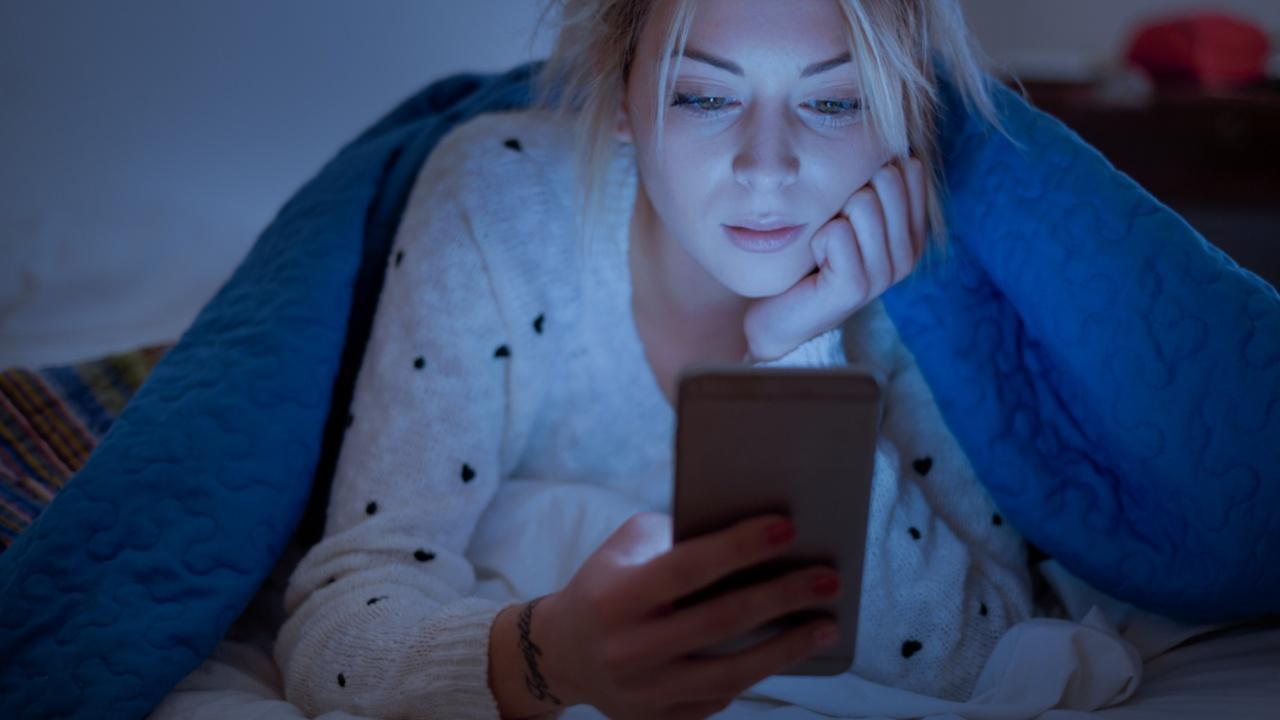Blue light has the ability to penetrate deeper into the skin. Even an hour's exposure to this light can trigger skin-related health issues

Skin is very sensitive and you can use sunscreen to protect yourself from blue light - however you need to look for sunscreen which specifically protects against blue light. Photo Courtesy:
Experts have said that increased exposure to blue light from several smart screens including LED TVs, tablets and smartphones can cause harm to your skin. Smart phones, computers, tablets, and laptops all release harmful radiation, specifically blue light which can cause burning, allergic reactions, redness, and faster ageing of the skin.
ADVERTISEMENT
Studies have shown that the time spent by Indians looking at digital screens is more than the time spent by Americans and Chinese. The global average of 7 hours, which has roughly increased by about 50 minutes per day since 2013. Blue light has the ability to penetrate deeper into the skin, and some global studies confirm that even a 1-hour exposure to this phenomenon can trigger skin-related health issues.
That explains the reason behind an exponential rise in skin-related health issues across the world, and India in particular, according to dermatologists. "Exposure to blue light can cause premature ageing and wrinkling of skin, sagging due to breaking down of collagen, hyperpigmentation, freckling, tanning and other issues," Dr Koushik Lahiri, Senior Consultant Dermatologist and Vice President, Indian Society of Dermatology, told IANS.
"Blue light is the factor behind oxidative damage, which is a chain reaction, when unstable oxygen molecules steal from nearby cells to stabilise themselves. In the process, they create more unstable molecules," added Dr Janaki K. Yalamanchili, Consultant Dermatologist, Cosmetologist and Trichologist, associated with KIMS Hospitals, Hyderabad.
"This will lead to programmed cell death," Dr Yalamanchili noted, discouraging prolonged exposure to blue light which would only hasten up the breakdown of skin's scaffolding proteins, responsible for firm, youthful skin. While it may not be possible to cut off screen time completely, Lahiri advised the need to reduce the screen time.
"Use these devices intermittently. Continuous use could be harmful." In addition, the experts also advised using a sunscreen that offers dual protection since it does away with the hassles of wearing one for outdoor and another for indoor.
"Skin is very sensitive and you can use sunscreen to protect yourself from blue light - however you need to look for sunscreen which specifically protects against blue light. Normal sunscreen usually acts on UVA and UVB rays but there are some that specifically protect against blue light," Dr. Ramanjit Singh, Visiting Consultant, Dermatology, Medanta Gurugram, told IANS.
Also Read: Mango payasam? Mumbai chefs share recipes for innovative desserts to make with the fruit this summer
This story has been sourced from a third party syndicated feed, agencies. Mid-day accepts no responsibility or liability for its dependability, trustworthiness, reliability and data of the text. Mid-day management/mid-day.com reserves the sole right to alter, delete or remove (without notice) the content in its absolute discretion for any reason whatsoever
 Subscribe today by clicking the link and stay updated with the latest news!" Click here!
Subscribe today by clicking the link and stay updated with the latest news!" Click here!







